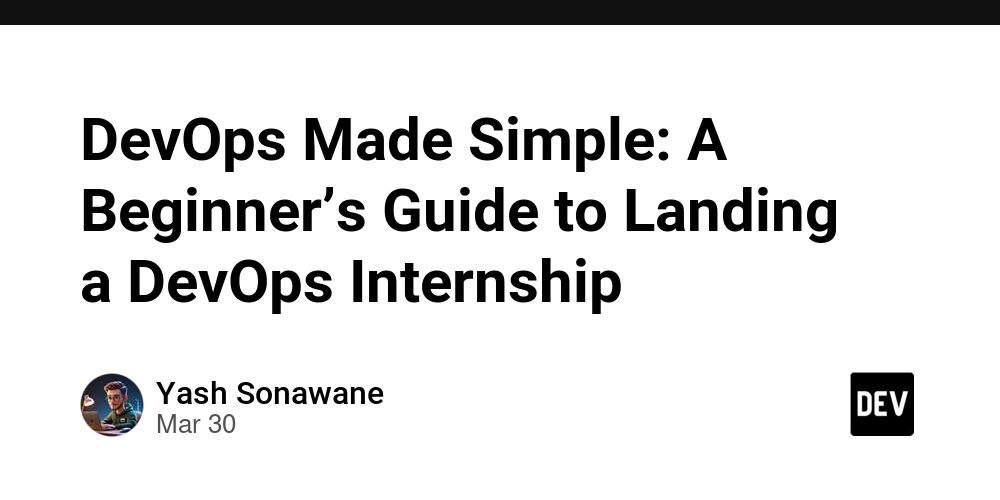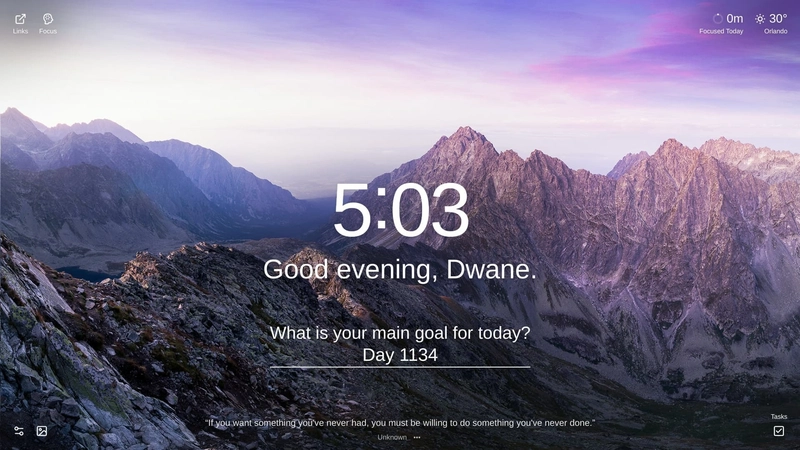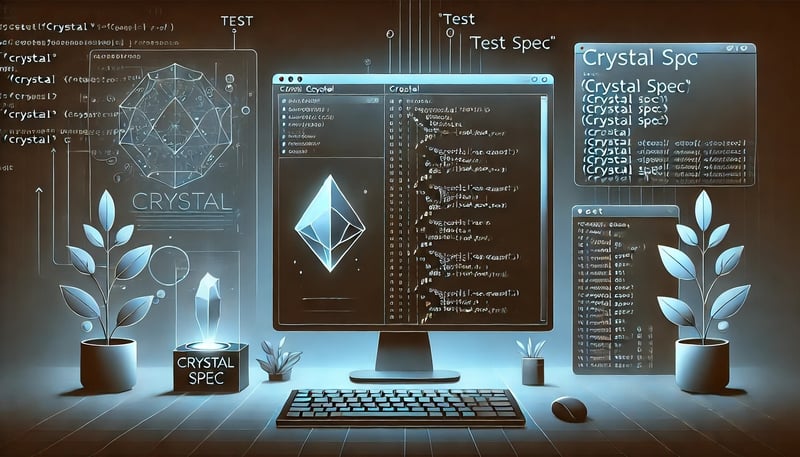DevOps Made Simple: A Beginner’s Guide to Landing a DevOps Internship
Introduction Breaking into the world of DevOps can seem overwhelming, especially for beginners. With a mix of development and operations skills, DevOps professionals ensure that software runs smoothly and efficiently. But how do you land your first DevOps internship when you have little to no experience? In this guide, we’ll break down the step-by-step process to help you secure a DevOps internship, even if you’re just starting out. We'll cover essential skills, tools, real-world applications, common mistakes, and best practices to get you job-ready. Step 1: Understand the Basics of DevOps Before applying for an internship, it's crucial to understand what DevOps is. DevOps is a culture and set of practices that bring development (Dev) and IT operations (Ops) together to improve software delivery speed, efficiency, and reliability. Key Concepts: Continuous Integration & Continuous Deployment (CI/CD) - Automating the process of integrating and deploying code. Infrastructure as Code (IaC) - Managing and provisioning infrastructure through code. Configuration Management - Ensuring systems are configured consistently using tools like Ansible or Chef. Monitoring & Logging - Using tools like Prometheus and Grafana to keep systems running smoothly. Example: Imagine you're working at a company that releases a new website feature every week. Instead of manually deploying updates, a DevOps pipeline automates testing, integration, and deployment, reducing human errors and saving time. Step 2: Learn the Essential DevOps Tools Internships often require familiarity with common DevOps tools. Here are some key ones to focus on: Category Tools to Learn Version Control Git, GitHub/GitLab CI/CD Jenkins, GitHub Actions Cloud Platforms AWS, Azure, GCP Containerization Docker, Kubernetes IaC Terraform, Ansible Monitoring Prometheus, Grafana How to Learn: Take free courses on YouTube or platforms like Udemy and Coursera. Practice by setting up a simple CI/CD pipeline on GitHub Actions. Deploy a basic web app using Docker and Kubernetes. Step 3: Build Hands-on Projects Recruiters value practical experience. Start small and work on projects to showcase your skills. Beginner-Friendly Project Ideas: CI/CD Pipeline for a Simple Web App – Automate code deployment. Deploy a Web App with Docker & Kubernetes – Learn container orchestration. Monitor Server Logs with Prometheus & Grafana – Get insights into system performance. Automate Infrastructure with Terraform – Deploy cloud resources as code.

Introduction
Breaking into the world of DevOps can seem overwhelming, especially for beginners. With a mix of development and operations skills, DevOps professionals ensure that software runs smoothly and efficiently. But how do you land your first DevOps internship when you have little to no experience?
In this guide, we’ll break down the step-by-step process to help you secure a DevOps internship, even if you’re just starting out. We'll cover essential skills, tools, real-world applications, common mistakes, and best practices to get you job-ready.
Step 1: Understand the Basics of DevOps
Before applying for an internship, it's crucial to understand what DevOps is. DevOps is a culture and set of practices that bring development (Dev) and IT operations (Ops) together to improve software delivery speed, efficiency, and reliability.
Key Concepts:
- Continuous Integration & Continuous Deployment (CI/CD) - Automating the process of integrating and deploying code.
- Infrastructure as Code (IaC) - Managing and provisioning infrastructure through code.
- Configuration Management - Ensuring systems are configured consistently using tools like Ansible or Chef.
- Monitoring & Logging - Using tools like Prometheus and Grafana to keep systems running smoothly.
Example:
Imagine you're working at a company that releases a new website feature every week. Instead of manually deploying updates, a DevOps pipeline automates testing, integration, and deployment, reducing human errors and saving time.
Step 2: Learn the Essential DevOps Tools
Internships often require familiarity with common DevOps tools. Here are some key ones to focus on:
| Category | Tools to Learn |
|---|---|
| Version Control | Git, GitHub/GitLab |
| CI/CD | Jenkins, GitHub Actions |
| Cloud Platforms | AWS, Azure, GCP |
| Containerization | Docker, Kubernetes |
| IaC | Terraform, Ansible |
| Monitoring | Prometheus, Grafana |
How to Learn:
- Take free courses on YouTube or platforms like Udemy and Coursera.
- Practice by setting up a simple CI/CD pipeline on GitHub Actions.
- Deploy a basic web app using Docker and Kubernetes.
Step 3: Build Hands-on Projects
Recruiters value practical experience. Start small and work on projects to showcase your skills.
Beginner-Friendly Project Ideas:
- CI/CD Pipeline for a Simple Web App – Automate code deployment.
- Deploy a Web App with Docker & Kubernetes – Learn container orchestration.
- Monitor Server Logs with Prometheus & Grafana – Get insights into system performance.
- Automate Infrastructure with Terraform – Deploy cloud resources as code.










![From drop-out to software architect with Jason Lengstorf [Podcast #167]](https://cdn.hashnode.com/res/hashnode/image/upload/v1743796461357/f3d19cd7-e6f5-4d7c-8bfc-eb974bc8da68.png?#)





























































